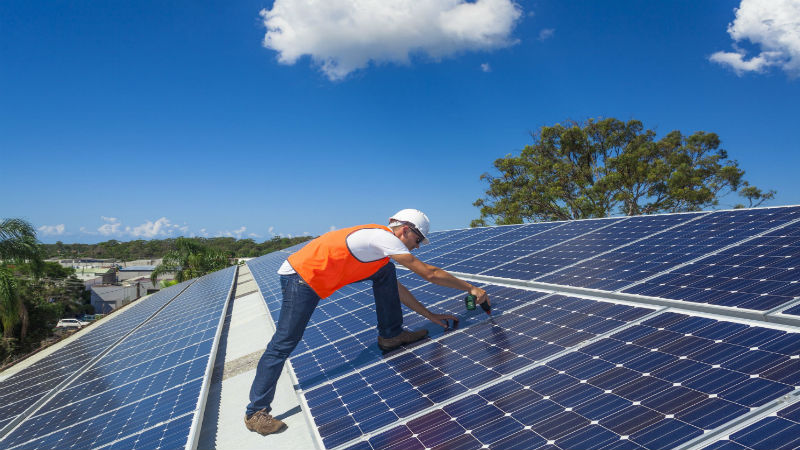Solar panels for residential and commercial applications continue to grow at a seemingly ever-increasing rate. This is likely due to the consistently decreasing costs of solar installations and the growth in government rebates and incentives. With the costs of solar panels continuing to drop, you can enjoy the benefits of solar for your household at a lower cost than ever before. Each residential solar installation brings along with it a number of positive impacts.
Reduced Greenhouse Gas Emissions
One of the positive impacts of installing residential solar power into your house is the reduction in greenhouse gas emissions. According to a study conducted by Berkeley, installing residential solar directly reduces your carbon emissions by about 80%. These huge reductions in greenhouse gas emissions are why local and state governments throughout the country continue to offer rebates and incentives to anyone installing a residential solar system.
Many solar power critics try to claim that the production of solar panels release more greenhouse gases than they save. However, this could not be further from the truth. To debunk this commonly spread myth, Yale studied these effects. They found that even the most environmentally friendly fossil fuel-powered plants produce ten times as much greenhouse gases as solar panels.
Solar Radiation is a Renewable Resource with Predictable Costs
Unlike fossil fuel reserves which are finite, solar panels utilize solar radiation to produce power which is a completely renewable resource. Through adding a residential solar installation to your home, you reduce the amount of fossil fuels you use. This can benefit you in a number of ways.
First, it lowers your overall environmental impact by powering your home through a renewable resource. Second, it provides a more predictable cost for powering your home as you will not be subject to sudden increases or decreases in fossil fuel prices. Finally, you will not be contributing to any of the devastating impacts associated with the use of fossil fuels like oil spills and groundwater contamination. This helps keep your New Jersey community clean and safe.
Decreased Home Electricity Costs
Another major benefit of implementing a residential solar installation to your household is the reduced electricity costs after doing so. New Jersey has one of the highest electricity rates in the country with an average cost of $0.158 per kWh. This high cost of electricity from utilities make adding a residential solar installation even more cost effective than some sunny areas like California.
New Jersey homeowners can reduce their electricity bills by over 30% through a residential solar installation. You can reduce it further by simply installing a higher powered solar system to your household. Most people in New Jersey save just under $1,500 on their electricity bills on their first year with a new solar installation. These savings only grow once you consider the Federal Solar Tax Incentives and New Jersey incentives for installing a residential solar system.
Visit Business name today for more information.


